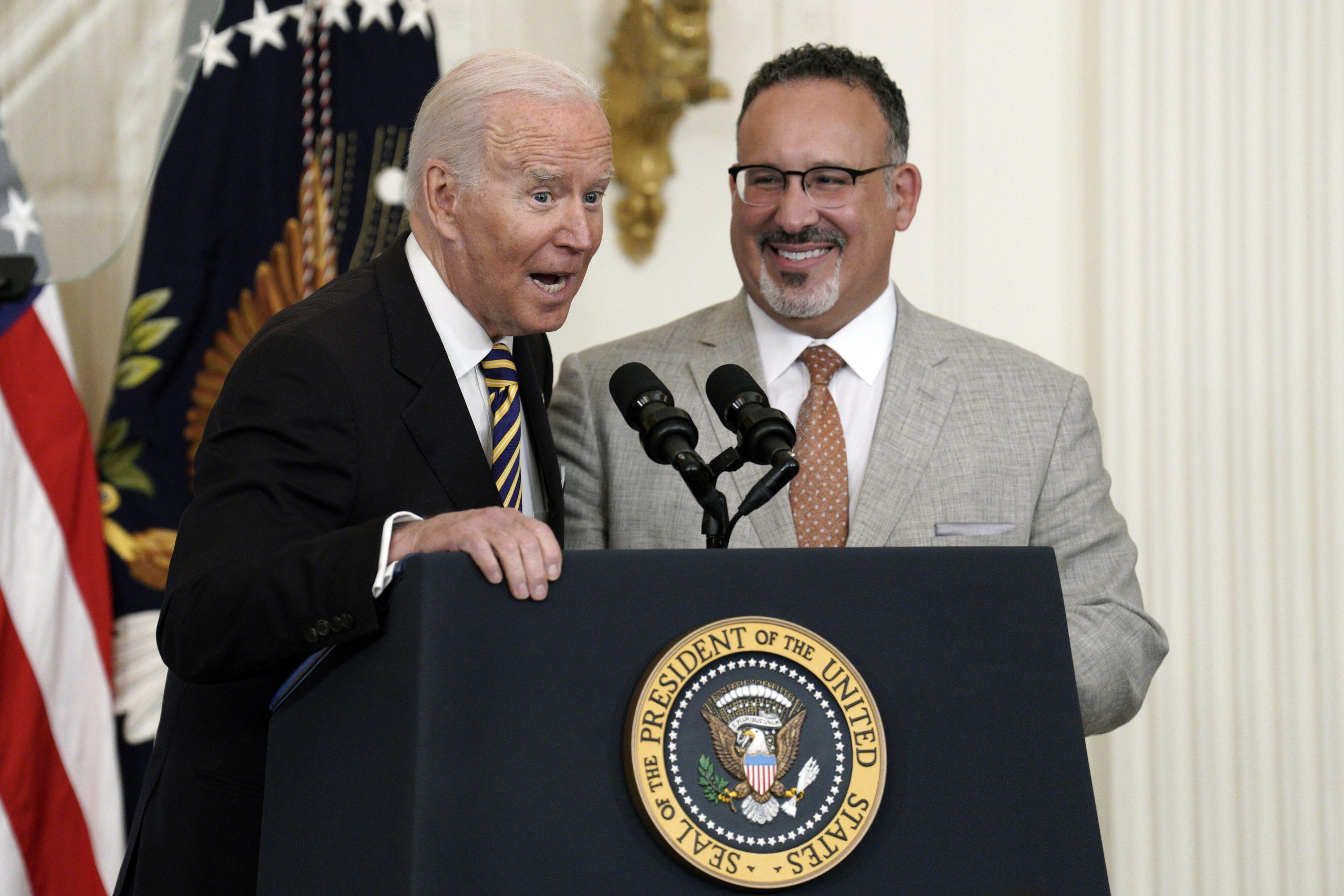
Chris Lange, FISM News
[elfsight_social_share_buttons id=”1″]
A new report shows that the National School Board Association (NSBA) had originally intended to ask the White House to deploy the National Guard and military police to monitor local school board meetings. An internal review of the now infamous letter that the NSBA sent to President Biden, which compared parents to domestic terrorists, led to a report that contained this shocking revelation.
The request, penned by Deborah Rigsby, the NSBA official in charge of lobbying and federal legislation, appeared in an early draft of the letter sent to the White House last September but was ultimately removed from the final missive, according to the report submitted by Milwaukee-based law firm Michael Best & Friedrich LLP.
The edited version, sent to Biden on Sept. 29, omitted Rigsby’s language but asserted that parents who spoke out at school board meetings across the country were committing “acts of malice, violence, and threats against public school officials” that warranted federal investigations under the post-9/11 Patriot Act.
“The classification of these heinous actions could be the equivalent to a form of domestic terrorism and hate crimes,” read the letter signed by former NSBA CEO Chip Slaven and the ex-president Viola Garcia. The two asked the administration to “examine appropriate enforceable actions” under the post-9/11 Patriot Act.
News of the letter and its contents sparked an immediate backlash from congressional Republicans and parents’ groups, particularly when Attorney General Merrick Garland cited it in an Oct. 4 memo ordering the FBI to investigate complaints of perceived threats against school officials from parents showing up at meetings to protest COVID-19 policies and critical race theory instruction.
In the original letter, the NSBA asked Biden to deploy the National Guard and its military police “to certain school districts and related events where students and school personnel have been subjected to acts and threats of violence.”
Amid the ensuing internal email exchanges, Slaven expressed concern that the language was perhaps too extreme.
“I went back and forth on this one,” he wrote, according to the report. “I think we should leave it out for now. I am concerned it could be seen as us asking for too much of a federal intervention. However, if things start to get bad, we can revisit.”
Rigsby, however, argued that the language should remain in place in a note attached to the draft.
“If a district and its officials have received imminent threats and have canceled contracts with local police/sheriff departments — and is experiencing threats, protests and related disruptions and also any changes in community standard(s) — perhaps the National Guard is needed … especially if a governor will not intervene with state law enforcement,” she wrote, adding, “We are already seeing punitive actions from governors over masks, thereby jeopardizing lives.”
Slaven was ultimately unconvinced, writing on Sept. 24: “I’ve reviewed this section again and think it will be seen as a federal intervention into local and state issues. School districts that have this issue should be reaching out to their Governor first who can deploy State Police. I also think this is not a widespread problem,” he added. “If we leave this in it will garner a lot of attention away from the broader context. I think we leave it out and can revisit [it] if things turn out to be more widespread.”
In a separate note, Slaven expressed his support for keeping the Patriot Act language in place, writing: “I recommend keeping it in because there is often confusion on the PATRIOT Act from the public so I thought calling it was important so there is not confusion.”
Amid massive backlash over the letter, the NSBA tried to walk it back a month later, saying in a statement that there was “no justification for some of the language included in the letter.”
Garland, however, refused to redact his Oct. 4 memo. Instead, he ordered the FBI and U.S. attorneys to set up meetings with federal, state, and local leaders to “facilitate the discussion of strategies for addressing threats” and “open dedicated lines of communication for threat reporting, assessment, and response.”
The report also confirmed that White House officials “actively engaged” with the NSBA in crafting the letter – accusations Education Secretary Miguel Cardona’s office flatly denied in January, despite evidence to the contrary discovered in email exchanges between Cardona and the organization.
“Evidence indicates that White House officials discussed the existence of the Letter, its requests, and the contents of the letter with Department of Justice officials more than a week before the Letter was finalized and sent to President Biden,” the report reads.
Slaven gave the White House an advance summary of the letter and its contents on Sept. 21, three days before the National Guard request was removed.
